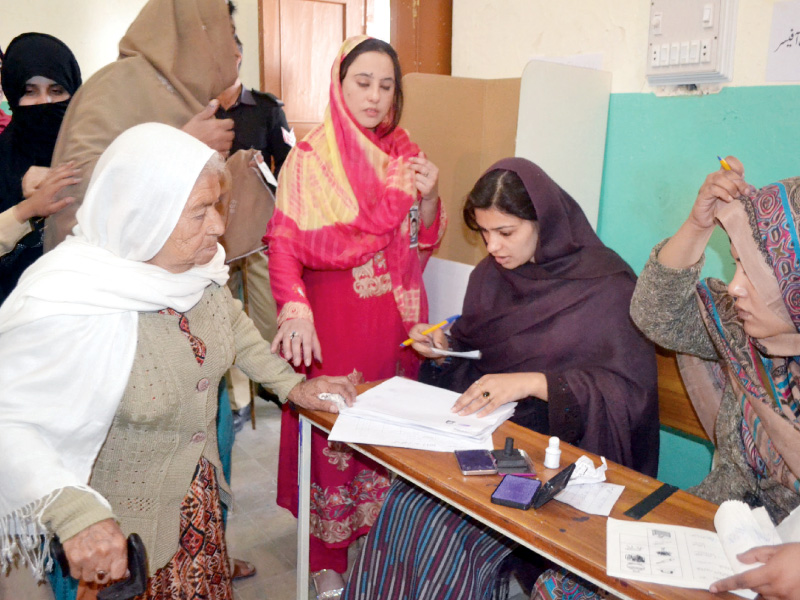
Balochistan’s government will give women a seat at the table but no voice
The local government system in Balochistan is a three-tiered structure that consists of districts, tehsils and union councils. At the top level, there are 37 districts in Balochistan, each headed by a district council that is responsible for local governance and development. Under the district level, there are tehsil councils that oversee the administration of tehsils within the district. The union councils and village councils form the lowest level of local government, responsible for basic service delivery and community development at the grassroots level.
Local governments play a crucial role in pursuing the interests of citizens because it is the level of government that is closest to the people. Local governments have a better understanding of the needs and concerns of the local community and can effectively address and advocate for those interests. Additionally, local governments are responsible for providing essential services such as education, healthcare and transportation. This makes them better positioned to tailor these services to meet the unique needs of the local population. Overall, the presence of local government ensures that the voices and needs of the community are heard and acted upon.
The issue of marginalisation of citizens in local government refers to the exclusion or lack of representation of certain individuals or groups within decision-making processes. This can result in the already marginalised citizens having limited access to resources, services and opportunities. It often disproportionately affects women; Section 12 of the Balochistan Local Government Act 2010 reserves 33% seats for women, which is very low considering that women form more than 50% of our society, and their participation in political activities is even lower. This can be attributed to cultural taboos, lack of education and awareness, and lack of faith in the abilities of women as political figures. During last year's local government (LG) polls, no woman contested election on any general seat in 10 districts of Balochistan. Only 132 women (less than one per cent) contested in various wards in urban and rural councils of Balochistan.
The Free and Fair Election Network (FAFEN) conducted Focus Group Discussions (FGDs) with the women councillors from all four provinces after the 2018 General Elections in order to uncover various issues that hinder women’s participation in the political space.
“During the meetings, male councillors do not even pay attention to any suggestions of the female councillors. As elected women councillors, they have no power or authority,” expressed one of the candidates.
Additionally, the limited participation of religious minority groups is also a concern. The local government of Balochistan does not provide adequate protection for its minorities. Under the determination of Section 11, the non-Muslims in Balochistan have only 47 seats for general councillors. Furthermore, disabled persons in Pakistan hold only two per cent of the quota in local government. Marginalisation in local government can lead to inequitable distribution of resources, lack of voice and participation. According to Centre for Peace and Development Initiatives (CPDI), the lack of equal representation and participation of citizens in decision-making processes of Balochistan is a concerning issue. It states that marginalised communities often face exclusion and discrimination, resulting in their voices being ignored or underrepresented in important decisions that impact their day-to-day lives. This not only hinders the development and progress of Balochistan but also perpetuates inequalities and disempowers its citizens.
Political affiliations, nepotism and corruption have had a significant impact on the local government of Balochistan. Political affiliations often drive decision-making, with officials prioritising party interests over the needs of the people. Nepotism is also prevalent, as influential individuals use their positions to secure jobs and contracts for their family members. This practice not only undermines meritocracy but also leads to inefficiency and incompetence in governance.
Marginalisation has a detrimental impact on the democratic process and governance by excluding certain groups from participating in decision-making and policy formulation. It undermines social cohesion and trust in the government, as marginalised individuals feel disconnected and disempowered. Ultimately, this continues the inequality and hinders the ability of democratic systems to address the needs and concerns of all citizens. This can lead to mistrust as marginalised groups may believe they are being treated unfairly or unequally. Finally, marginalisation also leads to disengagement, as citizens may no longer feel motivated to participate in civic activities or trust in the government's ability to address their needs.
The state must implement policies that ensure adequate representation of marginalised communities in local government bodies. This can be done through increasing the number of reserved seats and quotas for women, minorities and disabled citizens, allowing for a more diverse and inclusive representation. The need to strengthen mechanisms for transparency and accountability in local governance, such as regular audits, citizen feedback mechanisms, and public reporting is important. Encourage active citizen participation through community-led initiatives, participatory budgeting and community development programs. This will foster a sense of ownership and empower communities to take charge of their own development and address their specific needs.
By working together, we can create a society where no one is left behind, where every citizen has an equal opportunity to thrive, and where local governance is accountable and responsive to the needs of its people.

COMMENTS
Comments are moderated and generally will be posted if they are on-topic and not abusive.
For more information, please see our Comments FAQ